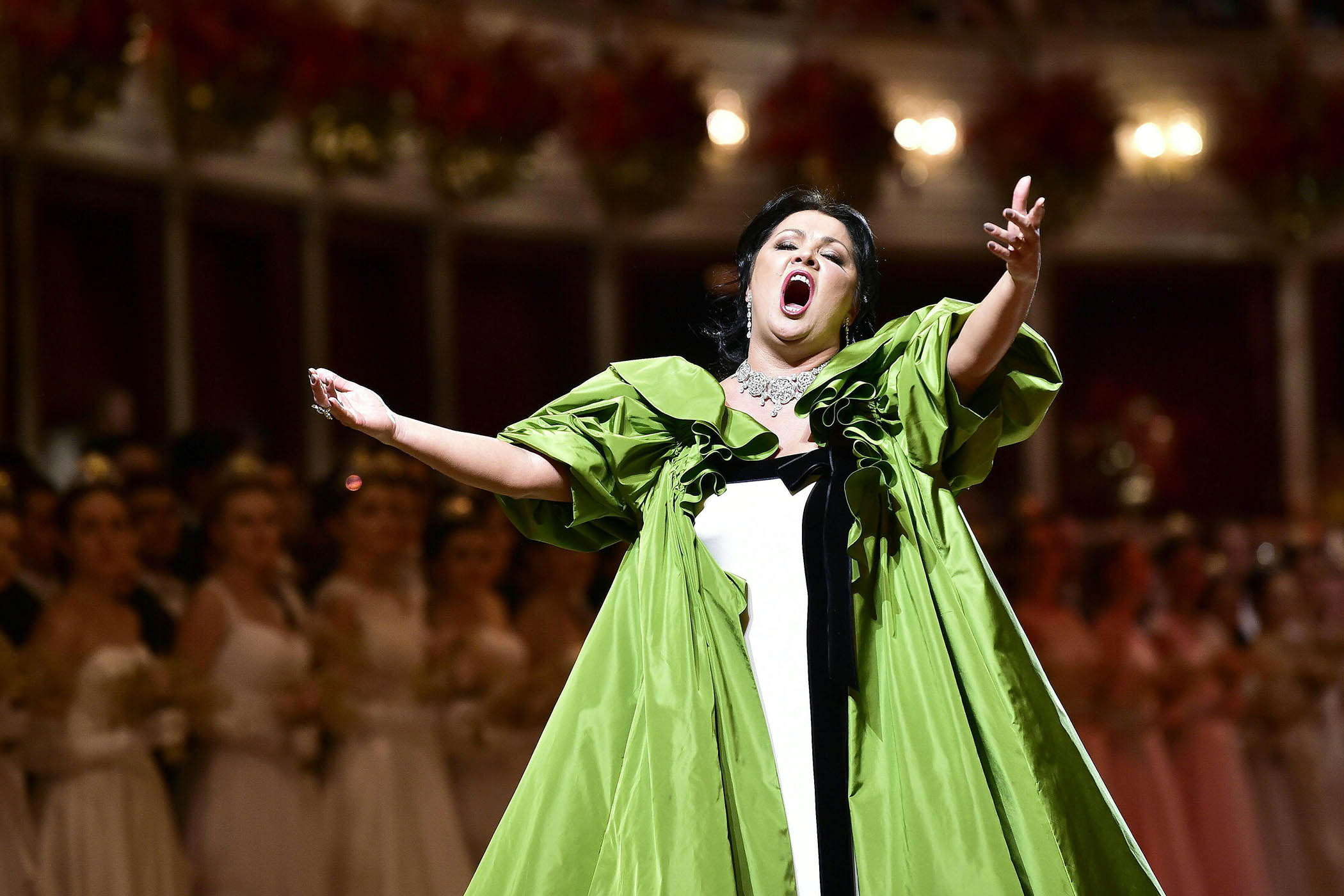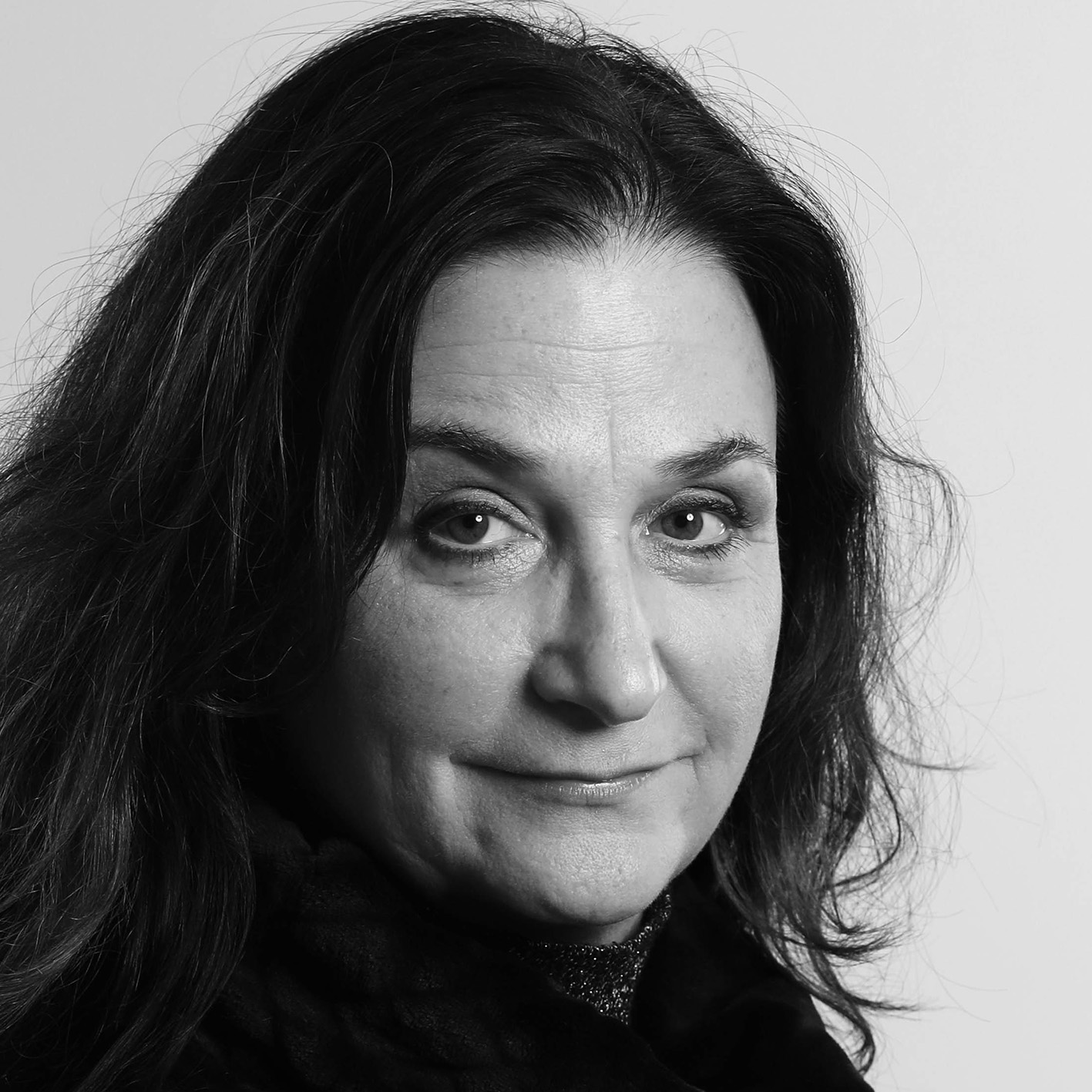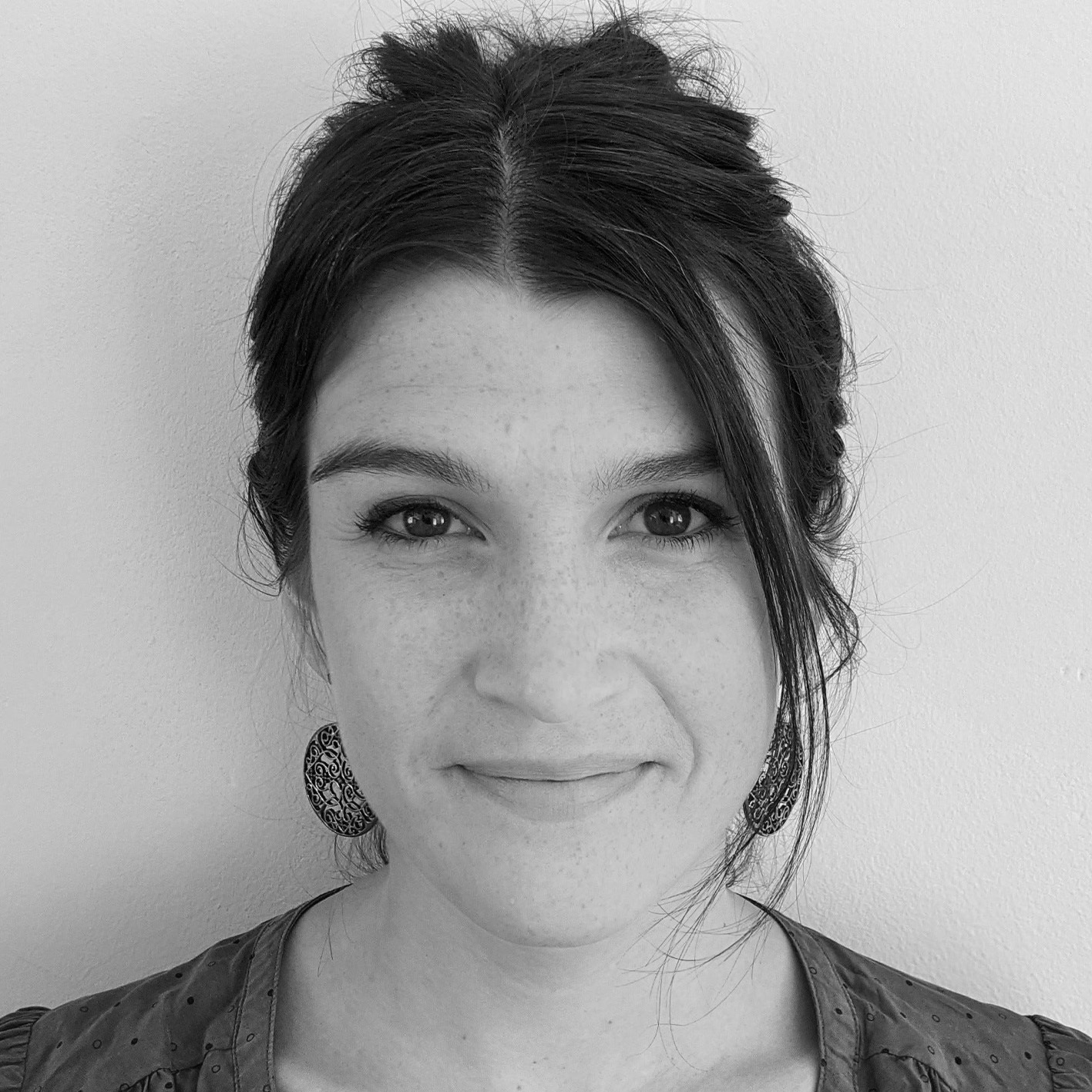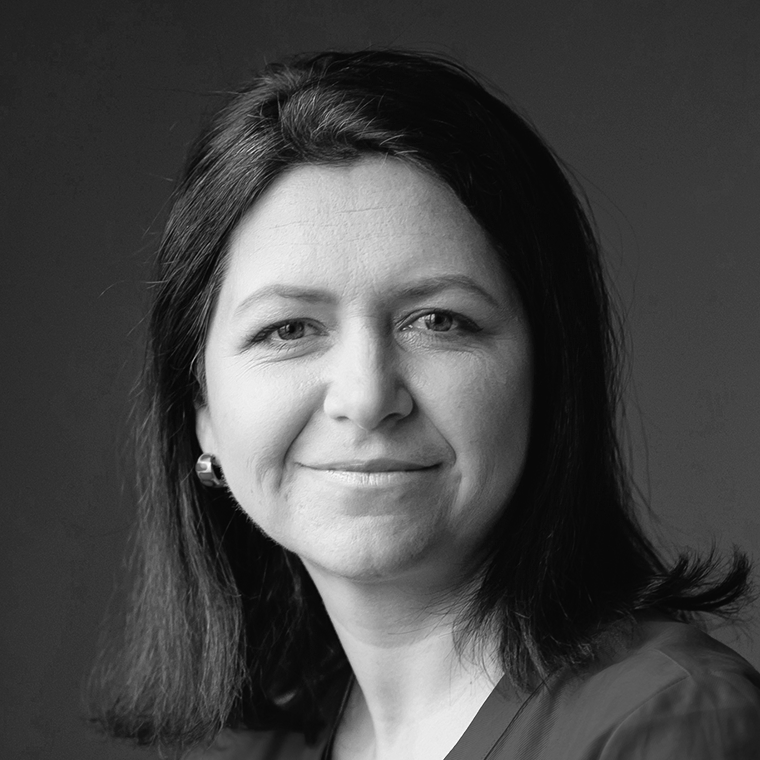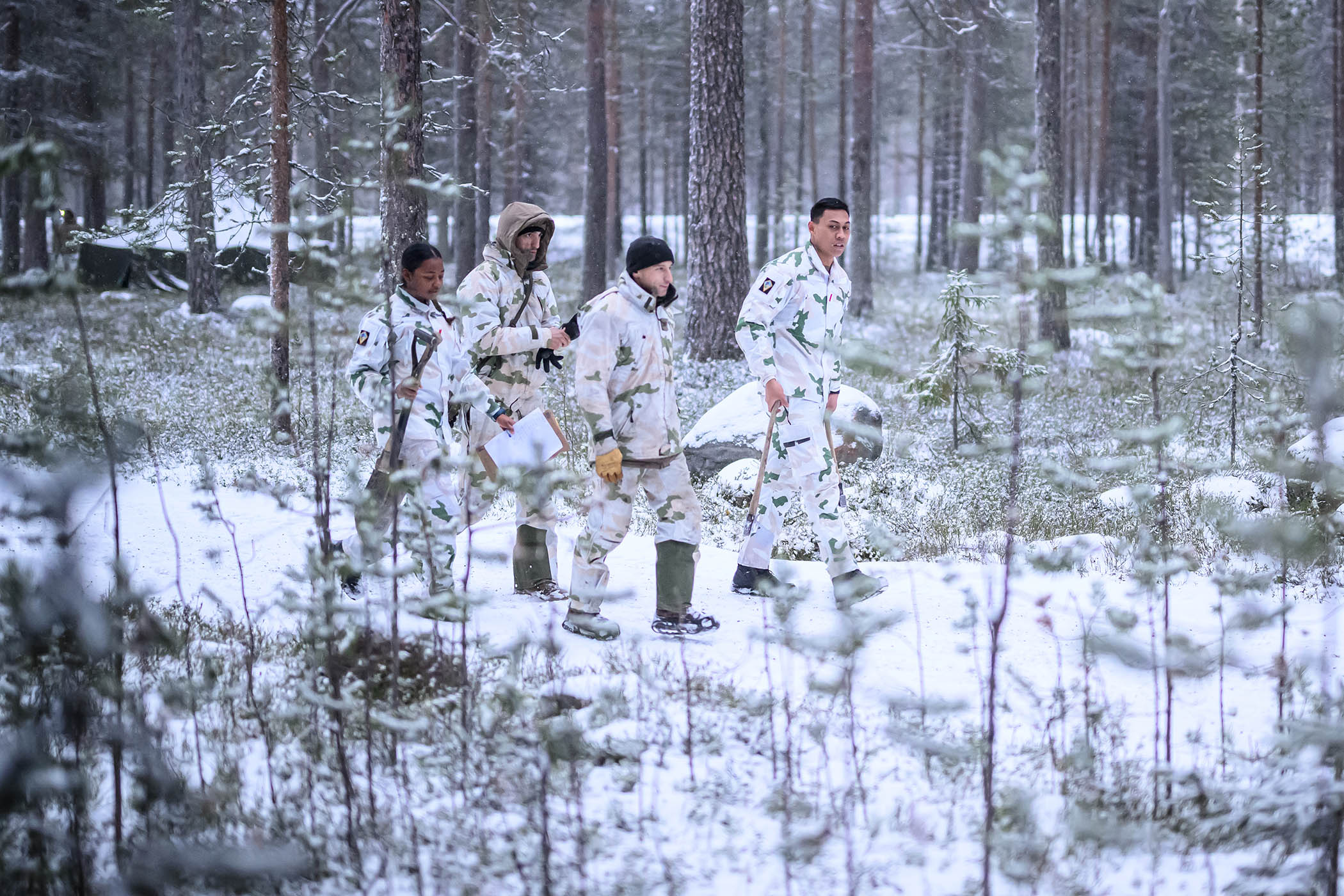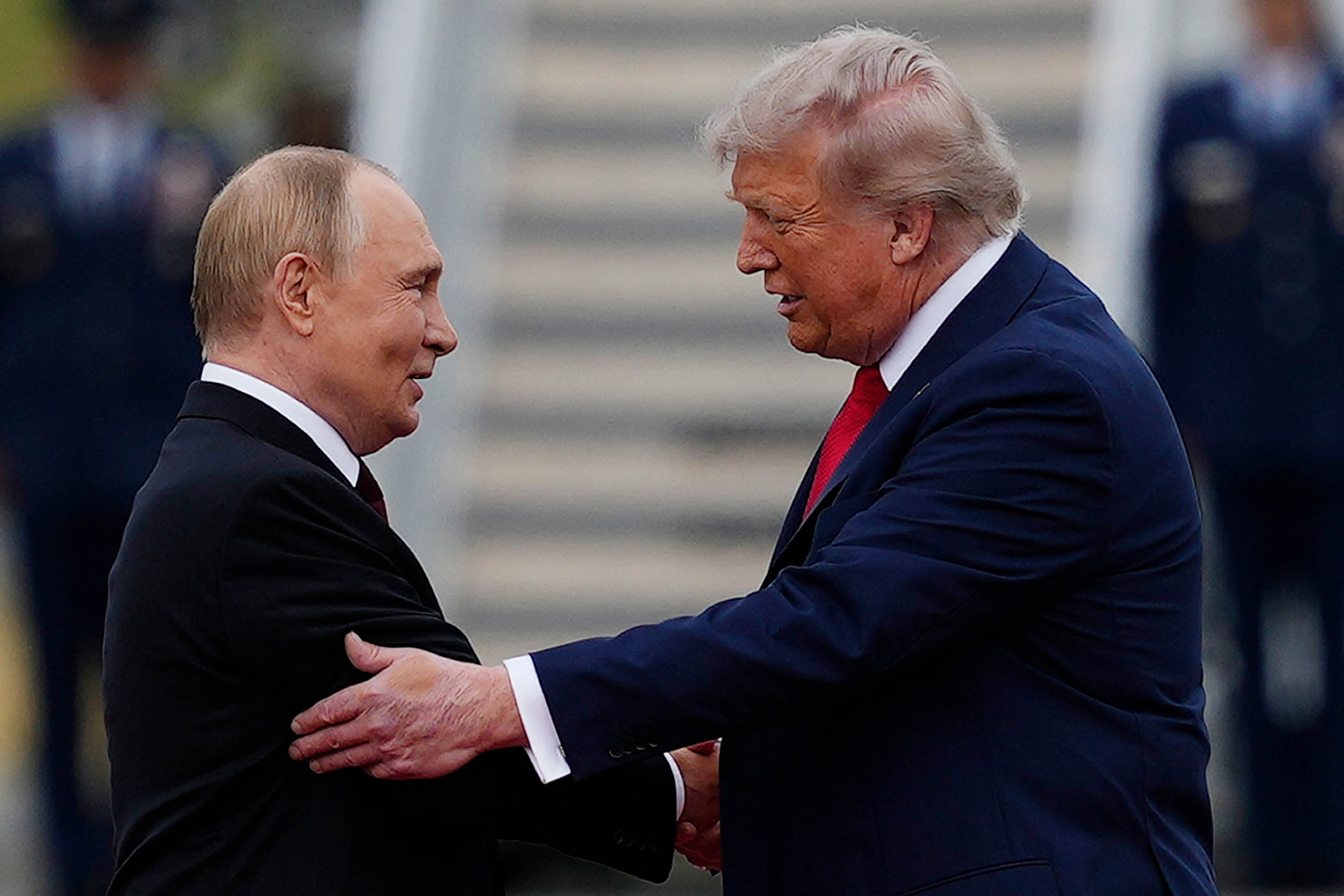The great Russian soprano Anna Netrebko is one of the major operatic talents of the age. Her name has sold out concert halls around the world. “For 10 years or more she has been the leading prima donna of our time,” says George Loomis, the New York opera critic. “Her voice has that Russian quality just to the right degree.”
For opera aficionados, perhaps. But Netrebko now finds herself at the centre of a divisive international row because of her former links to Russian president Vladimir Putin. At the peak of her career, aged 50, she disappeared from the stages of Europe following Russia’s full-scale illegal invasion of Ukraine. The Bavarian State Opera and the Metropolitan Opera in New York terminated agreements with her, while other cancellations were by mutual agreement. Three years on, as nightly Russian bombardments of Ukrainian cities continue, Netrebko is due to return to London to play Tosca at Covent Garden.
It is a drama that rivals the story told in Tosca itself: a repressive state in war-torn Rome destroys the life of the heroine, offering her a terrible choice between life and treachery.
The lead role in Giacomo Puccini’s tragic opera is one of the most prestigious for any soprano, especially in a new production at such a renowned venue. But Netrebko’s appearance at the Royal Opera House in two weeks’ time is prompting a storm of protest.
The management at the London opera house is facing calls for her appearance to be cancelled. A formal letter of protest published this month expressed the “pain” of witnessing the Royal Opera House open its doors to “a longtime symbol of cultural propaganda for a regime that is responsible for serious war crimes”. Among well-known signatories are Andrey Kurkov, the Ukrainian author of the bestseller Death and the Penguin, the Labour MP Alex Sobel, the former Conservative culture secretary Sir John Whittingdale MP, and the French philosopher and writer Bernard-Henri Lévy.
As a Kremlin favourite, Netrebko was given the honorary title of “people’s artist” by Putin in 2008. She was photographed with him that year receiving a bouquet of congratulatory flowers. In 2013 she was photographed standing beside him and other VIPs after a gala performance at St Petersburg’s Mariinsky Theatre, where her mentor, the acclaimed Russian conductor Valery Gergiev, is still director.
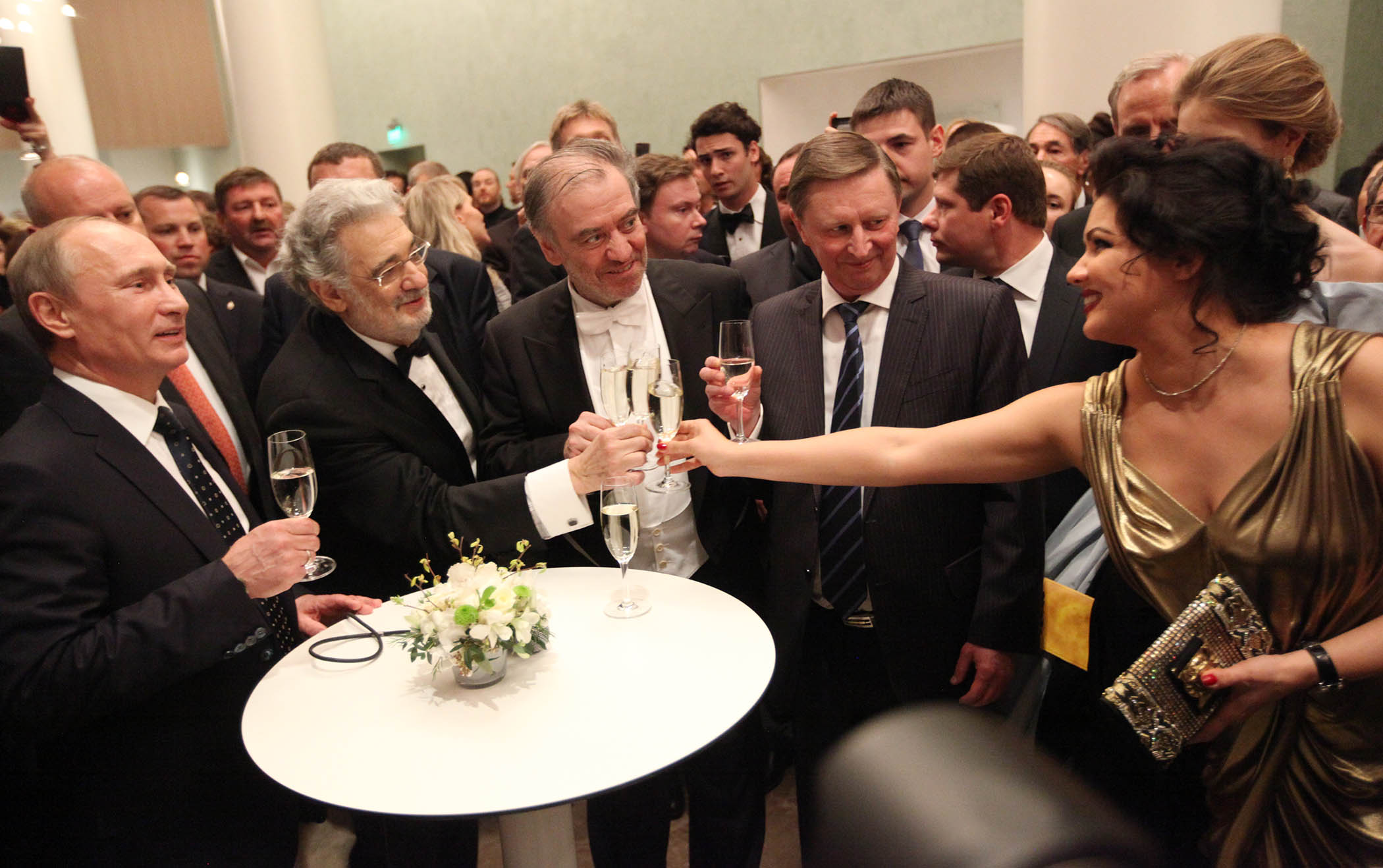
Netrebko with Vladimir Putin at the opening of St Petersburg’s Mariinsky II Theatre in 2013
Gergiev, once the darling of London classical music fans, has explicitly supported Russia’s war and so forfeited his stellar international career. He has been Putin’s “principal cultural henchman for the last 20 years”, says Peter Gelb, general manager of the Metropolitan Opera in New York. In 2022, Gelb made the decision to block Netrebko from performing there. “I am certainly not going to tell the Royal Opera House what to do,” he told The Observer this month. “But I do feel strongly about the position the Met has taken … I can look myself in the mirror and feel I’ve done the right thing.”
Yet the tenor Joseph Calleja, a Maltese opera superstar who has regularly shared the stage with Netrebko, questions the Met’s stand. He sees the soprano, his friend for 20 years, as innocent, more interested in fashion than politics. “First of all, nobody is a prophet,” he says. “If my president calls for me to give a performance, am I supposed to have a time machine to see what’s going to happen 20 years down the line?
“I’m not sure why the Met took that decision. Peter Gelb is a good friend, so I’m sure he has his reasons. But not allowing someone with this level of ability to sing, I think, is a disservice to opera. The Royal Opera House did a very good thing to bring Anna back.”
Whether Netrebko is a political pariah or naive victim is disputed and it is unclear how British opera-goers will greet her. Her return to the Vienna State Opera in La Bohème in September 2022 prompted booing on her opening night, while a group of Ukrainians demonstrated outside. But by the second night, some in the audience were cheering loudly enough to mask disapproval.
Newsletters
Choose the newsletters you want to receive
View more
For information about how The Observer protects your data, read our Privacy Policy
Netrebko has become the focus of a key question: how far can an artist be held accountable for their association with a tyrant?
Calleja sees it as unfair: “It’s very tough on people. You can use art to make a point, by all means. But use the medium, use the art. Don’t pick a singer and derail a career. If Anna becomes a lightning rod for negative things, instead of for the overwhelming positive things she’s achieved and her beautiful voice, then it will be a big pity.”
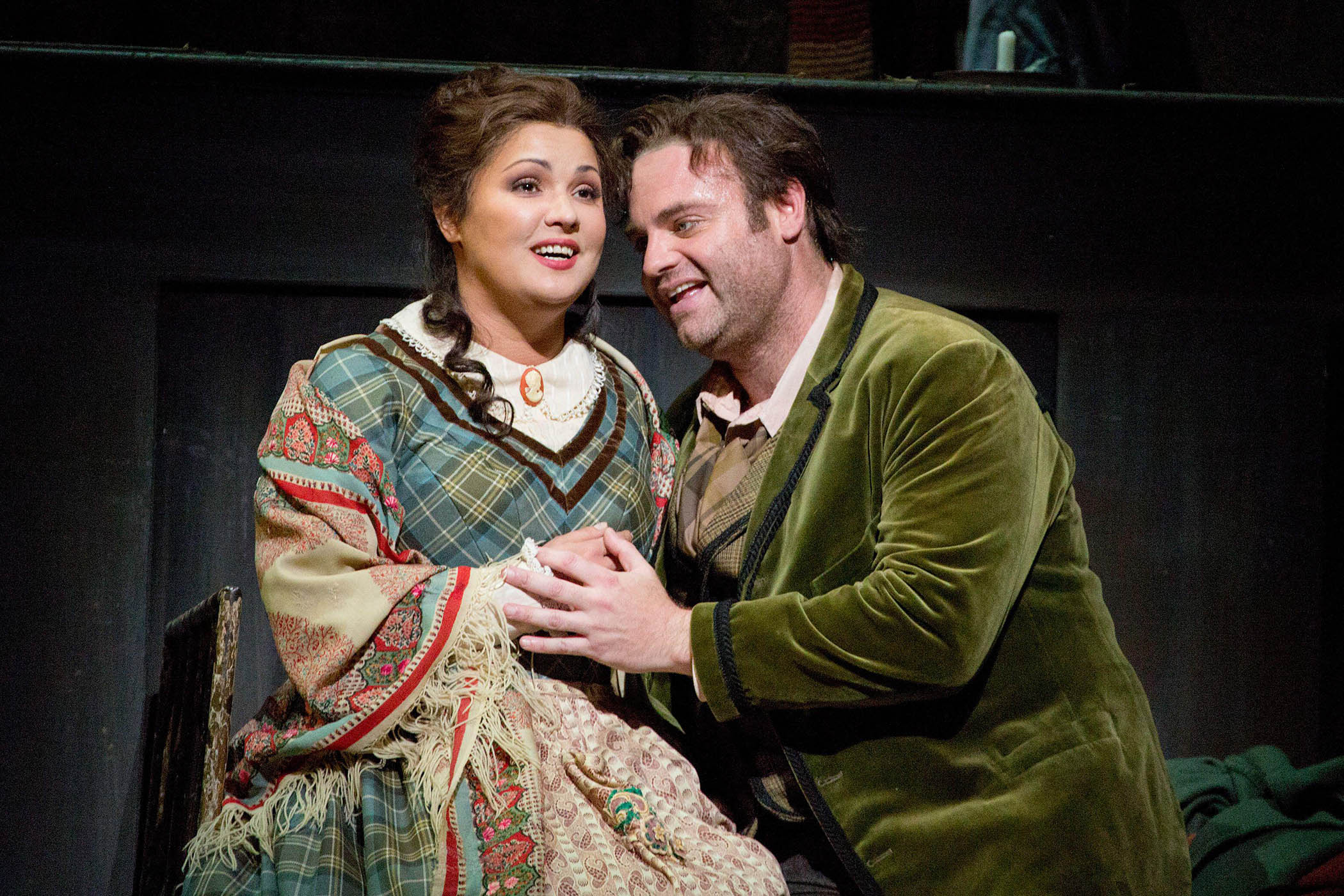
Netrebko and Joseph Calleja in the 2015 production of La Bohème at the Royal Opera House
For others, the invitation to sing at Covent Garden represents treachery. The Ukrainian opera and film director Oksana Taranenko believes every prominent Russian artist had a choice to make. “I mean, which side are you picking?” she says. “Because I never believed that culture or art can be above all of that. That’s not true. It cannot be.” Taranenko cites a notorious incident when Netrebko was seen holding the controversial flag of Novorossiya, a term dating to the time of Catherine the Great now used by Putin to refer to large areas of eastern and southern Ukraine, in 2014 during an event announcing a donation to Donetsk Opera. “You see, art is not just an island and the artist is not separated from society.”
Inside the ROH, emotions are raw. “There is real tension and confusion,” one employee says. “Rehearsals seem to be going well, though the atmosphere isn’t comfortable,” says another. “There are also chorus extras who think it’s pretty atrocious, but they don’t sing at the ROH often enough to feel they have any say in it, or they’re anxious to keep their positions on the extras list.”
There are also internal divisions about the war in Gaza. Earlier this month, the opera house dropped plans to take the Tosca production to Tel Aviv after almost 200 Royal Ballet and Opera members signed an open letter criticising the company’s stance on Gaza. In mid-July, Oliver Mears, the director of opera, stepped forwards to grab a Palestine flag from a protesting member of the cast in a production of Il Trovatore.
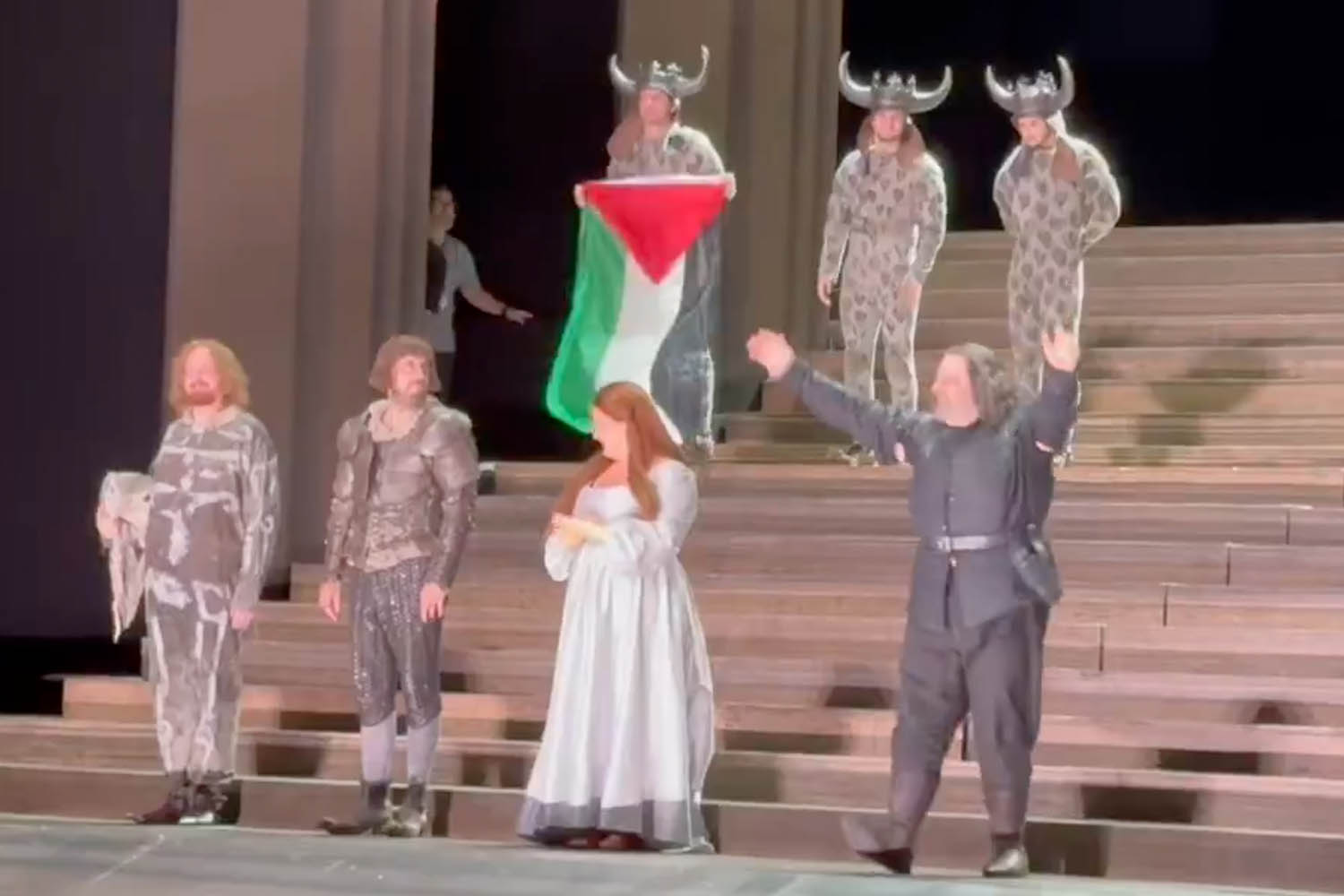
A cast member holds a Palestine flag after a Royal Opera House performance of Il Trovatore in July
“First Gaza and now a Russian singer,” says another employee, who asked to remain anonymous. “We had assumed Netrebko was cast in advance of the war, since opera stars are invited to perform years ahead. But now we have been told it was more recent.”
The soprano, who was born in Krasnodar in Russia’s south-west, now lives in Austria and does not visit her home country. Her management claims she did not understand what the Novorossiya flag stood for and pointed to a statement the singer posted on Facebook in March 2022, condemning the war in Ukraine. “My thoughts are with the victims of this war and their families,” she wrote, adding that she was not “allied with any leader of Russia”. This week, her manager, Miguel Esteban, said she had emphasised that she has never been in favour of war. Netrebko says she has met Putin “only a handful of times” and that she regrets that her “past actions or statements” had been misinterpreted. “I love my homeland of Russia and only seek peace and unity through my art,” she wrote.
A spokesperson for the Opera House said: “Covent Garden has always been a place for audiences to experience the very best talent from around the world. Every decision about who performs on our stage is made with great care and thoughtful consideration. Anna Netrebko has made her position clear.”
In welcoming Netrebko back, Covent Garden joins a group of concert halls and venues across Europe and America. The singer has recently performed in Berlin, Italy and Florida. She has also been engaged by Zurich Opera for its coming season and is scheduled to return to Covent Garden in Turandot in December. Gelb’s cancellation of the invitation to play Turandot in New York three years ago led to Netrebko being awarded more than $200,000 (about £147,000) for breach of contract. In the last month, her lawyers have also requested to file a new complaint alleging defamation by Gelb, arguing that his comments have posed a threat to her safety.
Mears is directing Tosca and has defended the casting. Although it is unclear who initiated the invitation, the ROH's new music director Jakub Hrůša has praised her talent. A spokesperson for the Opera House said it was an organisational decision. In April, Hrůša spoke warmly in an interview with the Times of seeing Netrebko sing the role. The ROH, he said, “should be connected to the best singers, and she belongs to their number”. Asked about Gelb’s decision at the Metropolitan Opera, he added: “I know [Netrebko] condemned the war and I have no reason not to take her statement seriously.”
Gelb, who finds himself at the centre of a protracted legal battle, was unable to comment directly about the litigation, but spoke to The Observer about the strength of his feelings in support of Ukraine on the eve of the tour of the Ukrainian Freedom Orchestra. The orchestra, founded by his wife, the Ukrainian-Canadian conductor Keri-Lynn Wilson, has first lady Olena Zelenskaas its honorary patron and comes to London’s Cadogan Hall to perform on Friday, only a few days before the curtain rises on Netrebko’s Tosca.
“You can’t have cultural exchange with a country that is trying to kill millions of people,” Gelb says. “Today, it would be a big mistake to even try to divorce art from politics. Art has to be used as a weapon for good. Certainly, Russia and Putin have used cultural propaganda for years. In today’s world, where Russia is trying to annihilate Ukraine and deny its very cultural existence, it is more important than ever that art be weaponised against these forces.
“When you think about it, this is much bigger than just the war in Ukraine. It’s really a fight for the free world, for the democratic world, and it has to be won. And cultural leaders and cultural institutions have to be part of that fight, in my opinion.”
Veteran critic Loomis believes Netrebko has been “victimised” in the past three years. “A lot of it has to do with the action taken quickly by the Metropolitan Opera, to create this barrier to her performances,” he says. “That led other companies to act similarly. And now the pendulum seems to be swinging back. But it is going to be a very rocky road between now and the first performance of Tosca because this recent letter signed by Ukrainians is the sort of thing that can just fan a protest movement.”
Netrebko has not returned to Russia since the full-scale invasion and lives in Austria, her permanent home since 2006.
One anonymous source from Moscow, where major theatres are state run, says the political atmosphere there now resembles the Stalinist era.
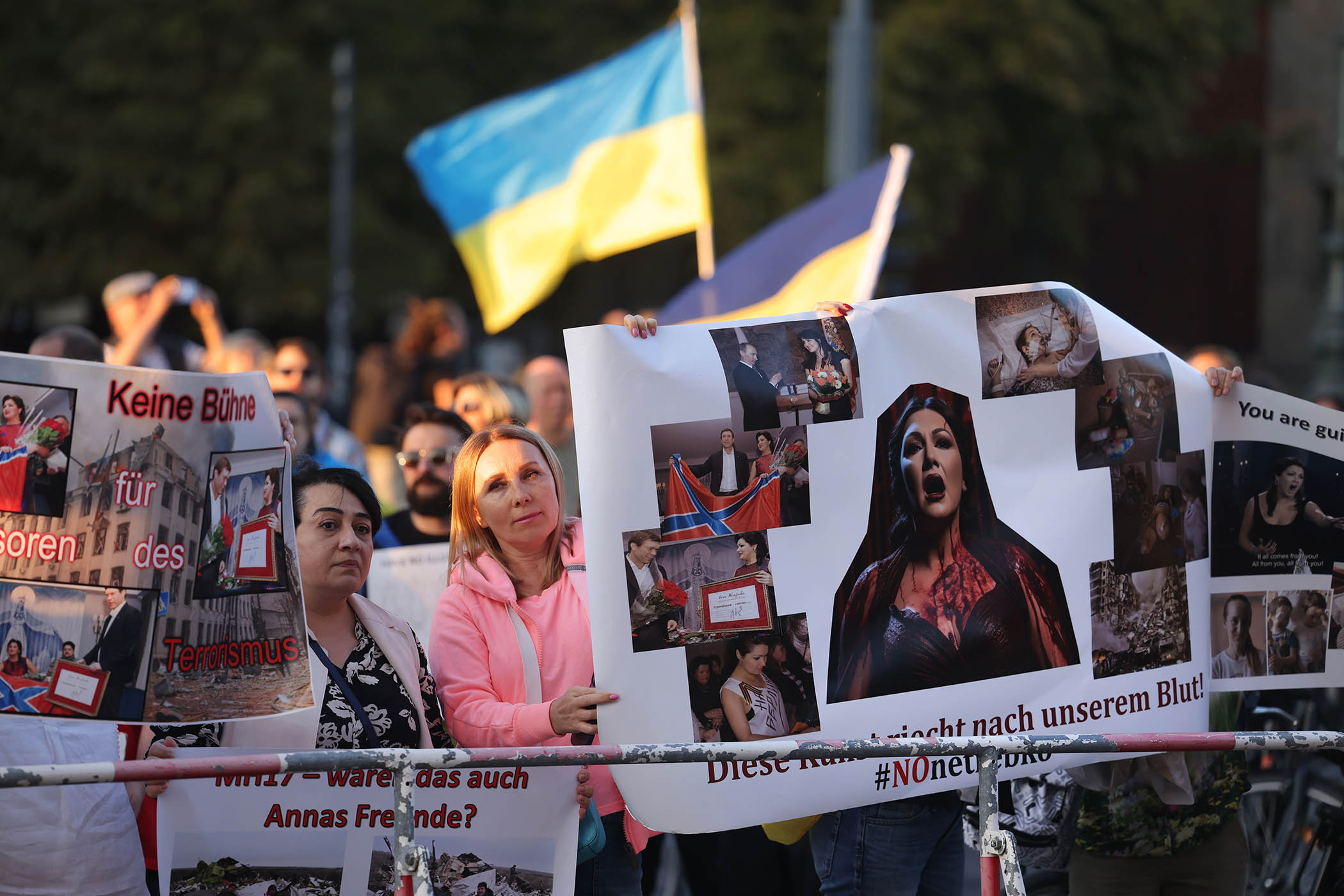
Protesters outside the Staatsoper Berlin where Netrebko performed in 2023
Alexander Molochnikov, 33, is a celebrated Russian theatre, opera, ballet and film director exiled from St Petersburg, who has an award-winning reimagined production of Anton Chekhov’s The Seagull opening in London next week. He has spoken out publicly from his new base in America against the invasion of Ukraine. “I supported Ukraine on my Instagram from day one. From the minute I saw the news, I think I posted a Ukrainian flag and was writing things in support.”
After appearing on US television, Molochnikov says he received threatening messages on Telegram from the Putin-supporting, militant Wagner Group of photos of his parents’ apartments in Moscow and St Petersburg. “It was quite scary. It’s heartbreaking that I wouldn’t be able to visit where I grew up or to be with my grandparents. It’s a horrible feeling. It’s incomparable to Ukrainians who have lost someone. It’s a small thing, but it’s my little tragedy.”
He thinks Netrebko is “an amazing opera singer” who should perform wherever she can.
“I’m always deeply against any cancellation of people because they were born somewhere or because they worked in a government theatre. There are no theatres in Russia that are not government theatres, which means: ‘Let’s boycott everybody who was doing art there.’ I strongly disagree with that.”
Photographs by Barbara Gindl/Getty, Sasha Mordovets/Getty, APA/Alamy, Donald Cooper/Alamy, @sydcas/X
•
This article was amended and updated on 29 August 2025 and 4 September 2025 following publication.
